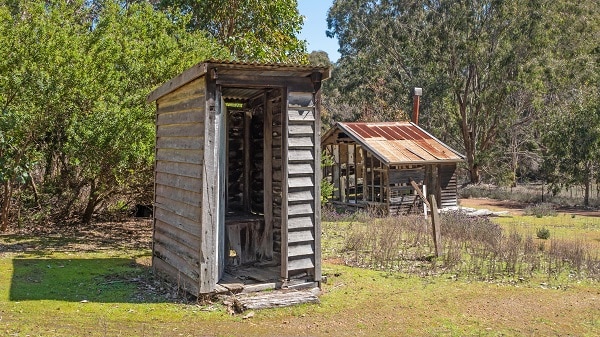If you are searching for an environmentally-friendly way to reduce your average water bill each month, look no further than composting toilets. Composting Toilets is a great way to save money, conserve water, and even better improve soil health. As the need to be more mindful of your environmental impact increases, so do the options available when it comes to eco-friendly alternatives for traditional restroom systems. Through this post, you’ll explore all the great benefits that come along with investing in a compost toilet! Let’s take a deeper look at why switching from conventional flush systems could be beneficial for both households and businesses alike.
Contents
Quick Run-Down On Composting Toilets

Composting toilets are not your typical flush models; instead, they are designed to decompose human waste into compost-like material. The process employs natural decomposition and evaporation to recycle human waste, essentially reducing it to a nutrient-rich soil conditioner. Unlike standard models, composting toilets consume little to no water, making them a superior choice for water conservation.
In comparison to conventional toilets, composting toilets have several unique features. Firstly, they eliminate the need for septic or sewer systems, thereby reducing infrastructure costs. Secondly, they don’t produce sewage, thereby reducing environmental pollution. Lastly, composting toilets can be installed virtually anywhere, making them an excellent solution for remote locations or areas with poor sanitation facilities.
Key Benefits Of Composting Toilets

The water-saving potential of composting toilets is impressive. Conventional toilets use about 1.6 gallons of water per flush, which adds up to thousands of gallons per year per household. However, composting toilets require no water for flushing, representing significant savings in water usage, a vital factor in regions facing water scarcity.
Moreover, composting toilets are highly eco-friendly. They eliminate the need for a septic or sewage system, thereby reducing the strain on these infrastructures and the environment. They turn human waste into a valuable resource instead of flushing it away and contributing to pollution. In a world grappling with climate change and resource depletion, these green alternatives provide a significant step towards sustainable living.
Economic Benefits Of Composting Toilets

Despite the initial investment being higher than conventional toilets, composting toilets are cost-effective in the long run. Their maintenance costs are considerably lower due to the lack of water and sewage bills. Moreover, the compost produced can be used to enrich the soil, saving money on fertilizers.
Furthermore, composting toilets reduces the need for complex plumbing systems. This is particularly beneficial for rural or remote locations, where installing extensive sewage systems can be prohibitively expensive. Composting toilets can be installed virtually anywhere, reducing construction costs and complexity, making them an economically attractive solution.
Health And Hygiene Aspects Of Composting Toilets

Many people harbor concerns about the hygiene and health aspects of composting toilets. However, when used correctly, composting toilets are hygienic and safe. The composting process involves high temperatures that kill pathogens, while the finished compost is typically safe and free from disease-causing organisms.
Scientific research supports the safety and hygiene of composting toilets. Studies indicate that composting toilets effectively kill harmful pathogens, making the finished compost safe to handle. Moreover, well-maintained composting toilets are odor-free, further confirming their hygiene factor. It’s clear that composting toilets are not only an environmentally sound choice but a healthy one too!
Composting Toilets And Soil Enrichment

One of the most significant advantages of composting toilets is their contribution to soil enrichment. The compost produced is a nutrient-rich soil conditioner, beneficial for gardening and farming. By turning waste into a resource, composting toilets contribute to a closed-loop, sustainable system.
Moreover, using compost from toilets can enrich the soil in ways commercial fertilizers can’t. It improves soil structure, enhances its ability to hold water, and promotes healthier plant growth. This can be particularly beneficial in regions with poor soil quality, turning previously unproductive land into fertile ground.
Implementing In Urban Settings

Unfortunately, there are practical challenges to implementing composting toilets in urban settings, primarily due to building codes and public perception. However, with growing awareness of their benefits and improved designs, these hurdles are gradually being overcome. Innovative solutions, like centralized composting facilities, can make composting toilets a viable option in cities.
Several urban environments have seen successful implementation of composting toilets. Cities like Portland and Seattle have embraced composting toilets in public buildings and eco-conscious residential developments. These examples demonstrate that composting toilets can be integrated into urban life, contributing to sustainable city living.
Outdoor And Recreational Use

Composting toilets offer convenience and practicality for camping, RVs, and off-grid living. They are easy to install, maintain, and transport, making them ideal for situations where traditional toilet facilities aren’t available. Moreover, by preventing the contamination of natural water sources, they are a responsible choice for outdoor enthusiasts.
As you may know, preserving the integrity of natural habitats is crucial. Composting toilets play an essential role in reducing human waste’s impact on the environment. Furthermore, their use can reduce the need for water, deterring the overuse of resources in recreational settings.
Community Development

Along with their environmental benefits, composting toilets can play a significant role in community development, especially in areas lacking proper sanitation. They can improve hygiene, reduce the incidence of waterborne diseases, and lower the environmental impact of human waste management. This can be a powerful tool for communities in need, giving them access to safe and effective sanitation solutions.
Globally, several communities have improved their living conditions through composting toilets. These initiatives have resulted in healthier environments, improved soil quality, and empowered communities by providing cost-effective sanitation solutions. This just goes to show how powerful these technologies can be in the right hands.
Future Trends In Composting Toilets
Composting toilets are witnessing exciting innovations and trends. Advances in technology are making them more efficient, user-friendly, and adaptable to various contexts. As the global community moves towards sustainable living and a circular economy, composting toilets will likely become increasingly mainstream.
While it may not be obvious to most, composting toilets have a significant role to play in the future of sustainable sanitation. With the ongoing global water crisis and the need for sustainable waste management solutions, composting toilets provide a viable, eco-friendly alternative. As more people become aware of their benefits, the adoption of composting toilets is set to increase, making them a key element in our sustainable future.
Consider The Many Benefits Of Composting Toilets!
Composting toilets offer a range of benefits, from water conservation and eco-friendliness to cost-effectiveness and soil enrichment. They provide a sustainable, practical solution to many of the environmental and infrastructural challenges associated with traditional sanitation methods. As the world moves towards a future where sustainability is not just desired but necessary, it’s worth considering how composting toilets can contribute to a greener, healthier world. Let’s embrace the benefits of composting toilets, not just for the people of today but for the generations to come.


